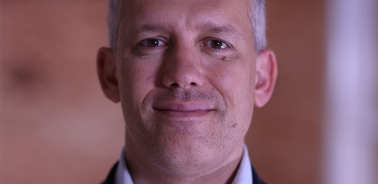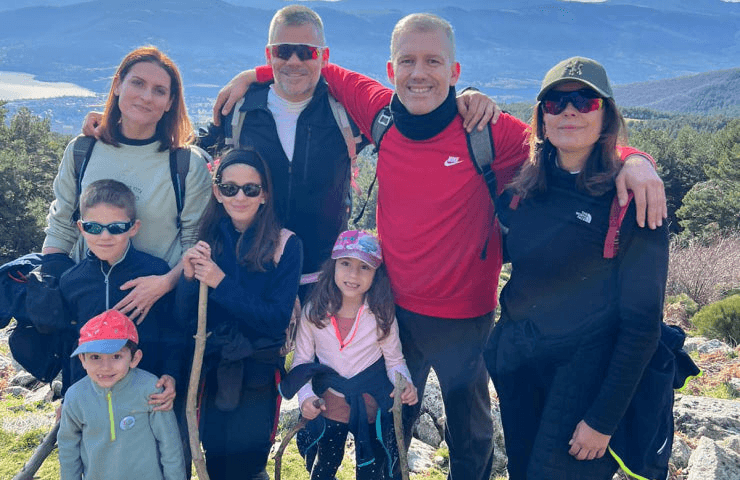Faculty Spotlight: Eduardo Rodríguez

Meet one of IE’s School of Science and Technology most influential thought leaders.
Nominated the “Most Engaging Professor” last semester, Eduardo Rodríguez sets a high bar in teaching excellence. Not only do his students love his classes, but they benefit from his world-class professional experience as a leader in telecommunications, security and technology spaces. He has vast experience working internationally and has managed teams and customer relationships across diverse cultures.
Passionate about technology and software architecture & development, Eduardo has led the ideation, development and rollout of new data products and high-value consulting services in global markets, including Tier 1 Telecommunication Service Providers and Fortune 500 Enterprises. He has also participated in several start-up ventures and holds a patent as the result of his Master's thesis from King's College London.
He is a Professor of Data Engineering & Technology topics and the Academic Director for IE Impact Technology. He is also an active member at COIT (Colegio Oficial de Ingenieros de Telecomunicación).
Meet one of the top professors at IE School of Science and Technology.
At IE School of Science and Technology, we talk a lot about being built to breakthrough. What has been your biggest professional or personal breakthrough and why?
I enjoy mentoring others, whether students or colleagues. In my courses, I always require students to architect and build systems that connect well with the course content, for example, a Bus Tracking System, a Spotify Wrapped generator… I happen to learn a lot both in the process of defining new projects each semester and also in guiding and evaluating my student’s work. Keeping problem statements open-ended and letting students explore different avenues freely results in great implementations that never cease to amaze me. It is a great feeling when students talk to you after a class to share how much they got out of building something tangible and see how all the learnings from different courses starts to click in their heads.
What brought you to IE? Where were you before? And what keeps you here?
I joined IE in 2020 as Adjunct Faculty. This is something I do alongside my regular job at NETSCOUT. It has so far been a great experience, and IE is a great place to teach. The student community is so diverse, you get a lot of support from the school plus it has been a great way to get to know like-minded people. Personally, I have been fortunate enough to teach courses that I am super passionate about and serve as the Academic Director for the IE Impact Technology program, which has been very rewarding. The way the School of Science and Technology is growing means a lot of new opportunities and initiatives are constantly opening up for professors, which is great.
Have you ever had an a-ha moment while teaching that furthered your research? What was it?
Working in industry and teaching is a constant positive feedback loop. In my regular job, I design solutions that inspire me to create great teaching content. At the same time, teaching pushes me to constantly look out for good designs and case studies broadly to use in my classes, which ultimately benefits me professionally. I’d say this dynamic works well for both sides of my professional life, and students always appreciate the way classes are connected to real-life examples.
What book do you wish your students would read before taking your class and why?
How the World Really Works: A Scientist’s Guide to Our Past, Present and Future. I think it is important that students understand the big picture, that the reason they learn about science and technology is to tackle the most pressing problems that affect the world now and in the near future. Gaining technical skill is definitely important, but to truly excel you must be able to apply those skills to the right problems.
What trends are you most excited about in science and technology and why?
I am very excited about the evolution of the energy sector in the coming decade and the innovative solutions that will surely reach commercial and industrial stages. Supplying clean, reliable, and abundant energy to all is a massive endeavor, one that keeps some of the greatest minds and corporations awake at night. I’d say this is an existential problem, because most of what we rely on today (access to food, transportation, or computing, just to name a few) will be at risk if this is not properly resolved. Biotechnology and bioinformatics are also two areas with great potential to reshape our lives soon, and hopefully help us live healthier and longer lives.
Please name one of your articles or studies you feel addresses the pressing issues for 2024?
I am currently researching the intersection of data engineering and advanced algorithms in the design of Smart Cities. This falls under the Urban Artificial Intelligence umbrella, which is a relatively new field of research that attempts to formalize the techniques available to urban and city designers to fully harness the power of data, algorithms, artificial intelligence, and sustainable engineering. I feel this is a very exciting area because there is great expertise in the business world relative to the use of data that has not yet been fully utilized in the public sphere. I will be writing a thesis on this very topic, so I will keep you all posted.
I am also interested in the regulation of digital platforms and the role of the European Union. In this regard, I wrote a chapter of the book “CRÓNICAS Y TESTIMONIOS DE LAS TELECOMUNICACIONES ESPAÑOLAS”, about emerging digital regulations in the European Union.
One of the areas I enjoy the most about teaching at IE is the opportunity to supervise student theses. I get to go deeper into topics such as IoT, Real-Time Systems, Networks, Smart Cities… This year, one of my students won the Best Final Project award, and another student got her research (The Use of Wearable Technologies and their Impact on Athletic Performance) published at the International Conference on Business and Technology. It makes me really happy to contribute to the success of our students.
Tell us one personal thing about yourself that none of your students know. A hobby, sport or talent? Strange fact? Unusual interest?
First time I watched the movie Wargames as a kid (I was around 7 years old), I decided I wanted to learn everything about computers and networks. I never changed my mind and pursued it, so I guess I am a bit stubborn! And also, before teaching at IE (and before COVID, as it changed the whole business travel landscape!) my job took me to many places around the world to work with telecommunication customers during “big events”, for example, the Olympic Games, World Cups, Formula 1 … This meant I got to enjoy some of the most exciting global events while doing something meaningful: using our technology to ensure the delivery of good communication services to athletes and visitors.
